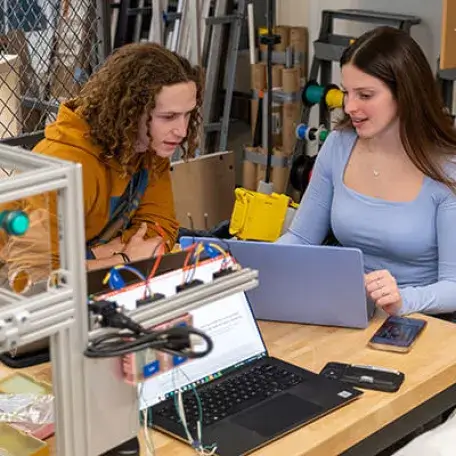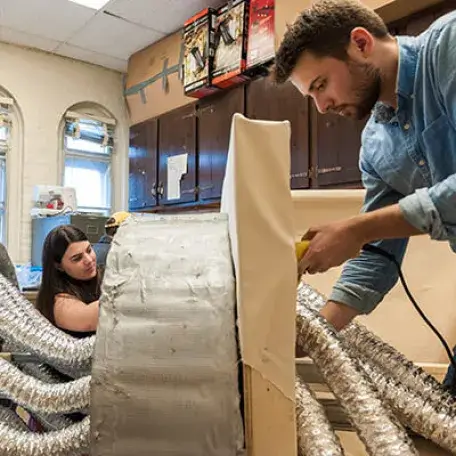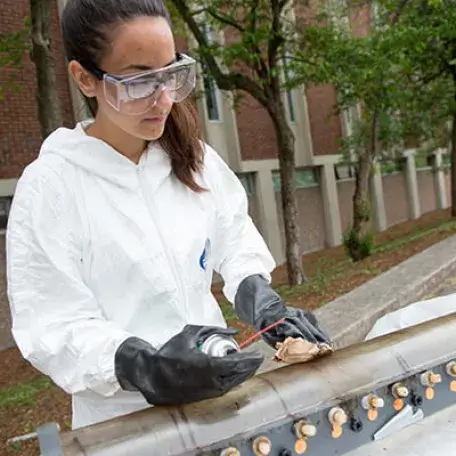Graduate student spotlights
Tara Nenninger
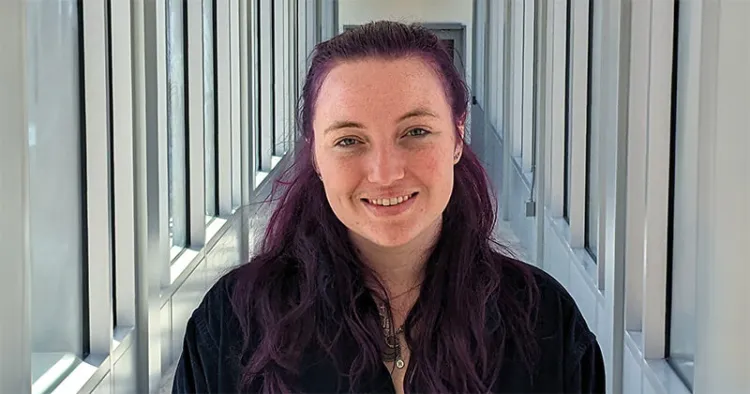
Faculty advisor:
Dr. Frederic Sansoz
Hometown:
Chicago, Illinois
Area of study:
Nanocrystalline Materials
Current research:
Currently, I’m working on using atomic scale simulations to determine new metrics for describing solute grain boundary segregation behavior in nanocrystalline materials. There’s an interesting behavior exhibited in some materials where solute atoms are unevenly distributed within the material and we are trying to understand more behind why that is.
What do you like about UVM?
I chose UVM as an undergraduate student when I saw how many opportunities there were to apply coursework to real projects like AERO and EWB. After I finished my bachelor’s degrees, I was given the opportunity to continue in the graduate college and I’ve been here ever since. I love how inclusive the UVM community is and how many opportunities there are to work with students through my teaching assistantship. The professors are so accessible for mentorship, even beyond my own advisor, they are always around to answer questions be it about research, teaching, or just navigating academia.
Future plans:
I chose material science because the computation research in the field was so interesting. When I finish at UVM I plan to continue teaching, ideally as a lecturer in dynamics and mechanics.
Links/papers:
Nenninger, Tara and Sansoz, Frederic. (2023). Local atomic environment analysis of short and long-range solute-solute interactions in a symmetric tilt grain boundary. Scripta Materialia. 222. 115045. 10.1016/j.scriptamat.2022.115045.
Irfan Tahir
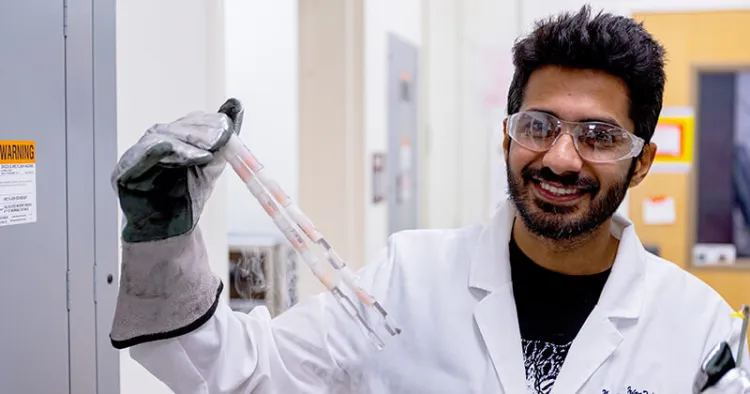
Faculty advisor:
Dr. Rachael Floreani
Hometown:
Rawalpindi, Pakistan
Area of study:
Biomaterials
Current research:
The main focus of my PhD research is to investigate the potential of alginate, a plant-based polymer, for use as a tissue-engineered scaffold for cultured meat (also known as cultivated meat or lab-grown meat). In our lab at the University of Vermont, we have the ability to create scaffolds using different chemistries and subsequently grow animal cells on them. Apart from cultured meat, I am also involved with some other projects in our lab, such as those related to cancer therapies or angiogenesis.
What do you like about UVM?
One of my favorite parts about studying and working at UVM is the incredible collaborative environment that permeates every aspect of the institution. The openness and kindness of the people I work with create a unique sense of belonging even though I have been at UVM for less than four years.
Future plans:
As I get closer to finishing my PhD, I am keeping my options open for the future, eager to explore diverse opportunities that align with my passion and expertise in cultured meat. My area of research is an exciting field to be in right now because of which there are many opportunities to choose from, whether it's related to academia, industry, or entrepreneurship.
Scott Tanch
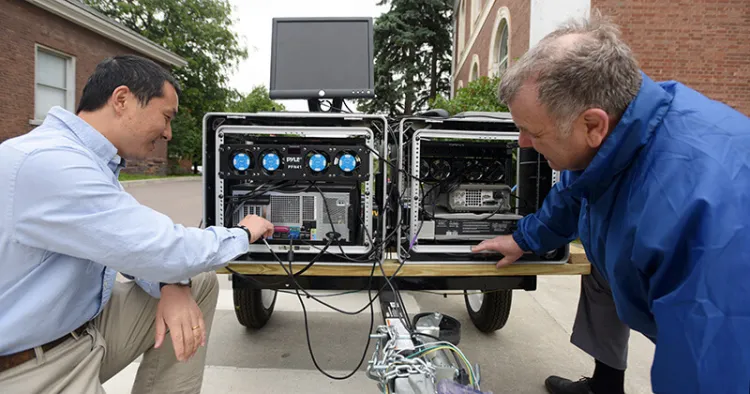
Faculty advisor:
Dr. Dryver Huston and Dr. Tian Xia
Hometown:
Nantucket, Massachusetts
Area of study:
Non-Destructive Testing and Imaging
Current research:
Initially, I wanted to study computational fluid dynamics, but after my first semester, I was connected with Dr. Huston and the radar lab. I had the opportunity to utilize and expand my programming skills while working with a great team. I’m currently working on enhanced Ground Penetrating Radar. We’re combining traditional techniques with visual tracking systems to reduce the burden on technicians and ease the interpretation of data that can often be very difficult for those who aren’t experts.
What do you like about UVM?
I chose UVM mostly for the geography. I wanted to leave home, but I couldn’t imagine leaving New England, and it doesn’t get much more New England than Vermont.
Future plans:
Right now, I’m not sure what I want to do after finishing my degree. I really enjoyed the time I spent as a TA, so teaching is a definite possibility.
